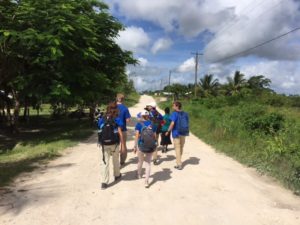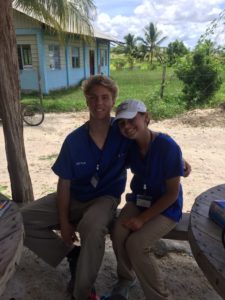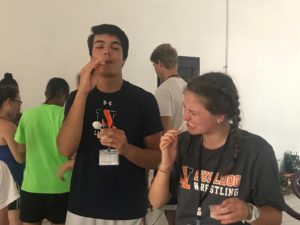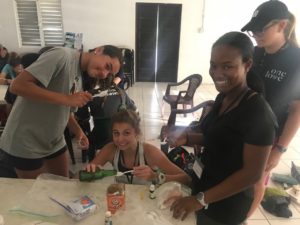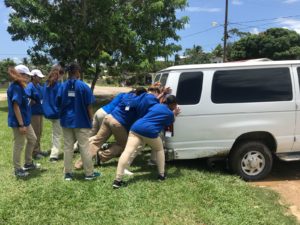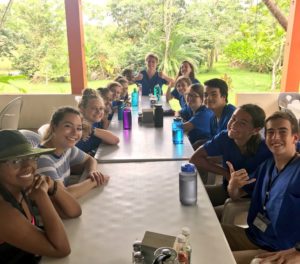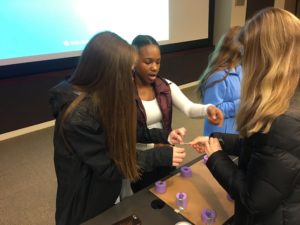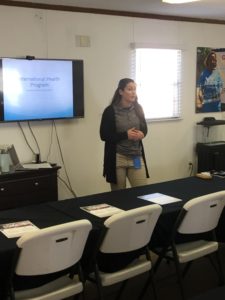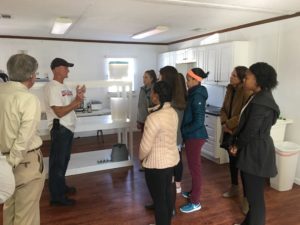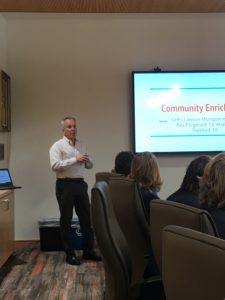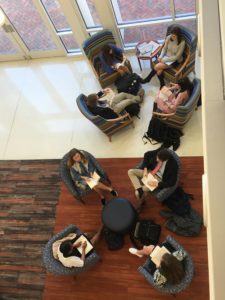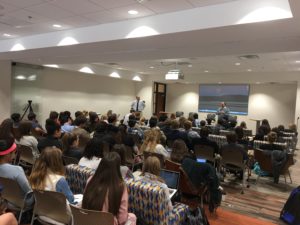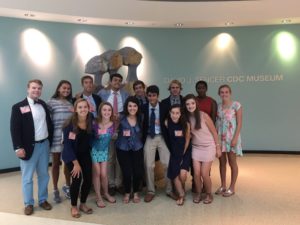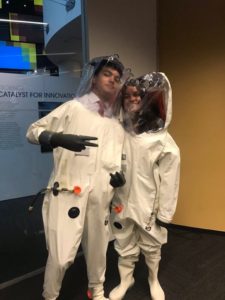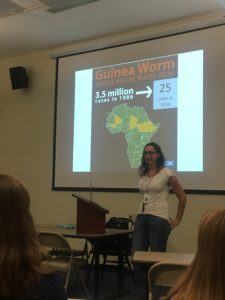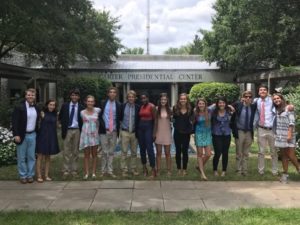The last full day, Friday, June 15th, is captured by Ella Davis (2021).
The excitement of the week carried us all the way to our last day in Belize and for some their last day of international GHF travel. Today was filled with work, reflection, and bonding mixed with happy memories and an overwhelming feeling of how much we’ll miss this place. The morning began with the health fair, giving us one last opportunity to interact with our community. There were vitals, blood pressure/blood glucose being taken, vaccines being distributed and babies being measured and weighed. I taught nutritional lessons to the women in the waiting area along with the hand-washing curriculum. The moms were very interactive and it was great to see that what we were teaching would make a difference within their households. While others were hard at work tending to patients, a few of us kept the kids occupied while their mothers waited. We handed out tooth brushing pamphlets for them to color, sat in a small circle and talked about everything from the colors of the Crayons to their school lives. One little five year old boy and I bonded in particular. I taught him how to use hand sanitizer and showed him all of our germs under the glow light. When it was time for everyone to pack up he ran over to me and gave me one of the best hugs of my life and that was when I truly felt that my job was special. After a fun-filled start to the day, our group decided to stop by the Pentecostal schools cultural day before lunch. Walking in, we were greeted by the kids we had taught just days before. But instead of uniforms, they were dressed in traditional Mennonite, Creole, Indian and American outfits and sold food out of each cultures tent. We played, ate and conversed for a while until we reluctantly headed back. Fortunately, our home stay families greeted us with a fantastic last lunch of the trip! After taking a quick but well deserved nap, we headed to the community center and started reflections. I was given the time to think about every awesome event on this trip, and just to think about the impact that we had on so many people’s lives. As we shared our reflections one by one, I couldn’t help but feel sad. I felt sad that we didn’t have more time to give to the people of these communities, and that we didn’t have more time to just be with each other without the temptations of electronics. Nonetheless, our last experience on our 2018 GHF Belize trip consisted of a bonfire, a few chairs and a lot of laughs. We chowed down on the going away cake for Kirsten (who will be missed greatly) sat around the dimly lit fire, just enjoying each other’s company, and playing a few rounds of Mafia. I’m going to bed thinking of the great memories we will all share in many years to come.
